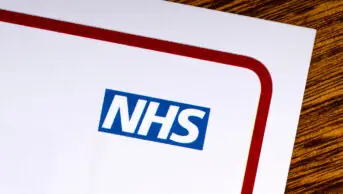
Shutterstock.com
Antiplatelet medicines, such as aspirin, appear to be safe and possibly beneficial for patients who have suffered an intracerebral haemorrhagic stroke, results from a clinical trial published in The Lancet on 22 May 2019 suggest.
The research, led by the University of Edinburgh, tracked the outcomes of 537 adults from across the UK who had survived at least 24 hours after a brain haemorrhage while they were taking antithrombotic therapy for the prevention of occlusive vascular disease.
Half of the participants were assigned to start antiplatelet therapy while the other half were assigned to avoid, or withdraw from, antiplatelet therapy.
After a median of two years’ follow up, the researchers found that 4% of those assigned to antiplatelet therapy had recurrence of intracerebral haemorrhage compared to 9% in those assigned to avoid it.
In addition, 7% of participants on antiplatelet therapy experienced major haemorrhagic events compared to 9% in the non-antiplatelet group.
The researchers concluded that their results showed that the risk of recurrent intracerebral haemorrhage was probably too small to exceed the established benefits of antiplatelet therapy for secondary prevention.
Rustam Salman, study author and professor of clinical neurology at the University of Edinburgh, said: “The results of [The Restart or Stop Antithrombotics Randomised Trial] are reassuring for survivors of brain haemorrhage who need to take antiplatelet medicines to prevent heart attacks and strokes.
“I am keen to investigate the possibility that these medicines might halve the risk of brain haemorrhage happening again.”
Commenting on the study, Metin Avkiran, associate medical director at the British Heart Foundation, said that around a third of people who have a brain haemorrhage do so when they are taking an antiplatelet medicine to reduce the risk of a heart attack or an ischaemic stroke.
“We now have a strong indication they can carry on taking these potentially life-saving medicines after the brain haemorrhage without increasing the risk of another one, which is crucial new information for both patients and doctors.”


